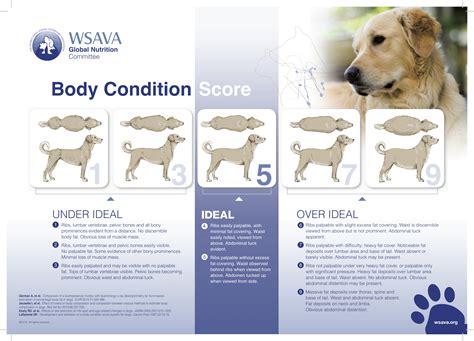Introduction

Obesity has become a growing concern among pets, with an estimated 50-60% of dogs and cats being overweight or obese in the United States. This has led to a significant increase in research efforts focused on pet weight management. In this article, we will explore six cutting-edge studies that are pioneering new approaches to tackling obesity in pets.
1. The Role of Gut Microbiota on Pet Weight
The gut microbiota, the community of trillions of bacteria, viruses, and other microorganisms that live in the digestive tract, has been found to play a significant role in both human and animal weight management. Recent research has shown that the composition of the gut microbiota in overweight and obese pets differs significantly from that of healthy pets. One study found that obese dogs had a higher abundance of certain bacteria, such as Firmicutes and Proteobacteria, and a lower abundance of others, such as Bacteroidetes and Actinobacteria. These findings suggest that manipulating the gut microbiota could be a potential strategy for weight management in pets.
2. The Effects of Exercise and Diet on Pet Metabolism
Exercise and diet are two of the most important factors in pet weight management. Exercise helps pets burn calories and build muscle, while a healthy diet provides the nutrients they need without excess calories. A study conducted by the University of California, Davis found that overweight and obese dogs that were placed on a weight loss diet and exercise program lost an average of 15% of their body weight. The study also found that the dogs that exercised regularly had a higher metabolic rate than the dogs that did not exercise. This suggests that exercise may help pets burn calories more efficiently.
3. The Use of Technology in Pet Weight Management
Technology is rapidly changing the way we care for our pets, and weight management is no exception. A number of new devices and apps have been developed to help pet owners track their pet’s weight, activity level, and food intake. These devices can provide pet owners with valuable information that can help them make informed decisions about their pet’s weight management. One study found that pet owners who used a weight management app were more likely to succeed in helping their pets lose weight.
4. The Role of Genetics in Pet Obesity
Genetics also plays a role in pet obesity, with some breeds being more prone to weight gain than others. For example, studies have shown that Labrador Retrievers, Golden Retrievers, and Beagles are more likely to be overweight or obese than other breeds. This is likely due to a combination of factors, including genetics, behavior, and environment.
5. The Impact of Obesity on Pet Health
Obesity can have a significant impact on pet health, increasing the risk of developing a number of health problems, including:
- Heart disease
- Diabetes
- Arthritis
- Cancer
- Skin problems
- Respiratory problems
In fact, a study published in the Journal of the American Veterinary Medical Association found that obese dogs are twice as likely to die from heart disease as healthy-weight dogs.
6. The Future of Pet Weight Management
The future of pet weight management is bright, with a number of new and exciting developments on the horizon. These include:
- The development of new drugs and therapies to treat pet obesity
- The use of artificial intelligence to help pet owners manage their pet’s weight
- The development of new pet food and treats that are designed to help pets lose weight
Conclusion
Obesity is a serious problem for pets, but it is one that can be managed with the right care and attention. The six studies discussed in this article provide new insights into the causes and consequences of pet obesity and point to a number of promising new strategies for weight management. As research continues to progress, we can expect to see even more advances in the field of pet weight management, helping to keep our furry friends healthy and happy for years to come.
Additional Tips for Pet Weight Management
In addition to the strategies discussed in this article, there are a number of other things that pet owners can do to help their pets lose weight and maintain a healthy weight. These include:
- Making sure your pet is getting enough exercise. Pets should get at least 30 minutes of moderate exercise each day.
- Feeding your pet a healthy diet. Choose a diet that is high in protein and fiber and low in fat.
- Monitoring your pet’s weight. Weigh your pet regularly to track their progress.
- Consulting with your veterinarian. Your veterinarian can provide you with guidance on how to best help your pet lose weight and maintain a healthy weight.
Step-by-Step Approach to Pet Weight Management
If you are concerned about your pet’s weight, the following step-by-step approach can help you get started on a weight management plan:
- Talk to your veterinarian. Your veterinarian can help you determine if your pet is overweight or obese and recommend a weight management plan.
- Set realistic goals. Don’t try to get your pet to lose too much weight too quickly





















